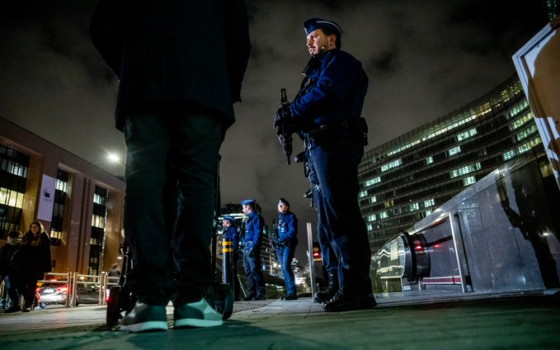
European countries are cooperating to combat networks recruiting minors and exploiting them to carry out violent acts. A clear map of the chain of roles, from the mastermind residing abroad to the teenager sent to carry out the attack, is provided.

- Europe and Arabs
- Friday , 15 August 2025 11:3 AM GMT
Brussels: Europe and the Arabs
With the growth of organized criminal networks exploiting minors to recruit them to carry out violent attacks in Europe, governments are seeking to enhance cooperation and develop new tools to combat them. According to a report published by the European News Network in Brussels, Euronews, on Friday, a report issued by the European Parliamentary Research Service in February warned of the rise in gang violence across the European Union, amid intensifying competition between criminal groups.
One of the most dangerous features of this phenomenon is the recruitment of minors into organized crime and terrorist networks. This has prompted countries like Sweden to enact laws allowing the wiretapping of children under 15, in an attempt to stem a wave of bombings that have reached at least 36 since the beginning of 2025.
According to the latest data from Eurostat, the European Statistical Office in Brussels, 10% of EU citizens reported experiencing crime, violence, or vandalism in their neighborhood, with the percentage rising to 12.3% among groups at risk of poverty.
The report indicates that although Europe remains among the continents least affected by organized crime, criminal networks are expanding their global reach and becoming increasingly flexible and digital, making them more open to diversity and competition, and thus more vulnerable. Vulnerable to escalating violence.
The challenge today for European governments and institutions is to confront the immediate threats and address the roots of extremism, while preserving democratic freedoms and citizens' trust.
A Network to Hunt Down Masterminds
Europol's Operational Task Force (OTF), launched in 2025 to combat the escalation of violence as a service, clearly mapped the chain of roles in these operations, from the mastermind residing abroad to the teenager sent to carry out the attack. Investigations identified four key stages:
The Instigator: Funds and orders the crime, often residing outside the area of the attack.
The Recruiter: Searches for potential perpetrators via gaming platforms or encrypted messaging apps, and pressures or persuades them.
The Facilitator: Provides the necessary tools, logistics, and financial arrangements.
The Perpetrator: Carries out the crime, often a minor with no criminal record, keeping them out of the sight of law enforcement.
This division allows for a "conveyor belt" of violence to operate, with the instigators providing the incentives and the recruiters providing the hands. The facilitators prepare the environment, while the perpetrators bear the risks. The result: masterminds are difficult to track and youth are easy to exploit.
The OTF currently includes Belgium, Denmark, Finland, France, Germany, Iceland, the Netherlands, Norway, Sweden, and Europol, with more countries expected to join soon.
The recent accession of Iceland has strengthened international cooperation, while intelligence sharing has enabled the arrest of high-profile targets and continued investigations across the continent. The task force works to disrupt this chain at all stages, targeting not only those who carry out attacks, but also those who plan and benefit from them.












No Comments Found